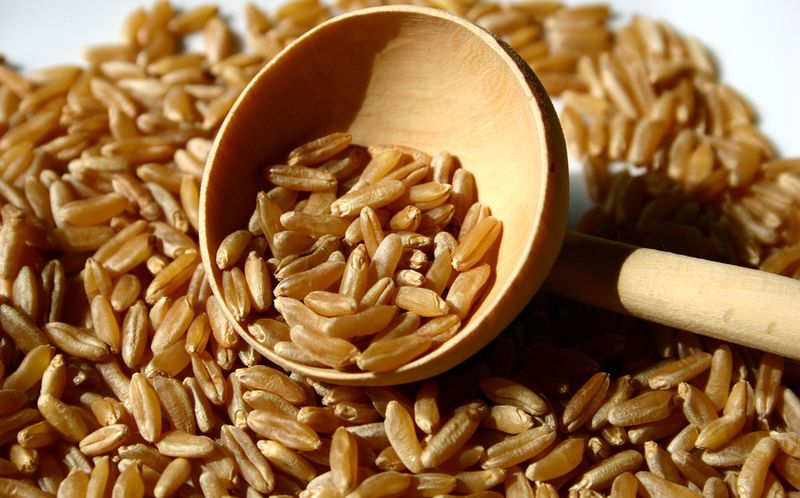Wheat for Afghanistan stuck in India-Pakistan bureaucratic jam

Even with millions of people in Afghanistan facing hunger during a harsh winter and deepening humanitarian crisis, a donation of 50,000 tons of wheat aid from New Delhi is stuck in bureaucratic limbo between India and Pakistan.
In October, India said it would provide 50,000 tons of wheat to Afghanistan and requested that Pakistan allow its transportation through Wagah to Attari, the entry point for goods between India and Pakistan. From there, it would go by road to Torkham, an Afghanistan-Pakistan crossing point.
After almost four months, the wheat aid has not crossed at Wagah, making it almost impossible to deliver it to starving Afghans before winter’s end.
Hinting at further delay, Pakistan’s Foreign Ministry spokesperson Asim Iftikhar told Nikkei Asia on Feb. 9 that the “first consignment” will be allowed through “likely at the end of the month.”
The first shipment had previously been expected to go between Feb. 10 and Feb. 12 after Farid Mamundzay, Afghanistan’s ambassador to India, was quoted in the Indian press saying that Pakistan had provided all assurances required by India.
Earlier, Iftikhar told a press briefing in Islamabad that Pakistan conveyed full information to the Indian side in January. “We are awaiting a response on the information they have to provide,” he said.
Although he did not elaborate, the information Islamabad requested from New Delhi is believed to include routine shipping details. According to sources privy to the matter, at the end of December Pakistan asked for details on the first consignment, such as date of dispatch and lists of Afghan-registered trucks and drivers.
Pakistan also asked that a focal point be established in Pakistan to coordinate between the Afghan logistics company and Indian authorities, and required that the truck movements take place without publicity.
According to the same sources, Islamabad promised visas and travel permits for the journey to Torkham, along with security provision along the route. These details were shared by the Pakistan High Commission in New Delhi with the relevant Indian authorities.
India, meanwhile, says it remains committed to providing humanitarian assistance to Afghanistan.
“The process to procure the wheat and to arrange its transportation is still underway,” Arindam Bagchi, spokesperson for the Ministry of External Affairs, told a media briefing on Feb. 3. “We will share with you updates as soon as we have them.”
Initially, Pakistan wanted the wheat to be transported across its territory in Pakistani trucks, but India wanted to use its own vehicles or Afghan ones. The compromise was to use Afghan trucks only, but it was an example of the easily avoidable wrangling that has dogged the initiative.
Bagchi in a Dec. 2 briefing said: “Let me reiterate our belief that humanitarian assistance should not be subject to conditionalities.”
For now, however, the shipment remains stuck amid bureaucratic hurdles as the back and forth continues.
After New Delhi made its decision in October to donate the 50,000 tons of wheat, Pakistani authorities took their time deciding whether to make an exception and allow it through. Transit trade from India to Afghanistan is not usually allowed because of tense relations between Pakistan and India. Pakistan does, however, allow transit shipment of Afghan exports to India.
Because of the snowballing humanitarian crisis in Afghanistan, Pakistan’s Prime Minister Imran Khan on Nov. 22 made an exception and approved wheat and medicine shipments along the Wagah-Torkham route. A high-ranking Pakistani official told Nikkei that this was “on an exceptional basis for one-time so that it does not become a precedent for the flow of commercial Indian transit goods to Afghanistan.”
The official said that Pakistan’s “policy circles and public opinion are not in favor of this facility for regular transit trade to India in view of the stalemate between the countries since August 2019.” The freeze came about after New Delhi removed the Indian-controlled part of Kashmir’s autonomous status. Pakistan reacted by downgrading diplomatic relations with India and suspending bilateral trade.
The Pakistani senior official told Nikkei that as far as finalizing modalities and beginning shipments is concerned, the ball is in India’s court.
An Afghan government official told Nikkei that the Taliban regime in Kabul is “disappointed” by the delay. He was of the view that the Taliban leaders were provided some reassurances by India in Russia on the sidelines of the so-called Moscow-Format meeting there in October. The Indian delegation led by JP Singh, the joint secretary of the Ministry of External Affairs, expressed its readiness to provide extensive humanitarian assistance in a meeting with Afghanistan’s Deputy Prime Minister Abdul Salam Hanafi.
“We expected India to send the aid via Iran’s Chabahar Port, but it was suggested we ask Pakistan to allow India to deliver the consignment through Wagah,” the Afghan official said.
For its part, Pakistan has begun moving 50,000 tons of wheat it donated to Afghanistan in December. The first consignment of 35 truckloads were handed over to Afghan officials from the agriculture ministry at Torkham on Dec. 30.
Read also
Black Sea Grains and Oilseeds: Export Flows and the Future Potential. Outlook for ...
Turkmenistan reports record wheat harvest, but international estimates are much lower
Ukraine expects record soybean harvest – USDA forecast
Brazil’s soybean acreage expected to rise
Poland does not rule out reinstating unilateral ban on imports of Ukrainian agricu...
Write to us
Our manager will contact you soon



